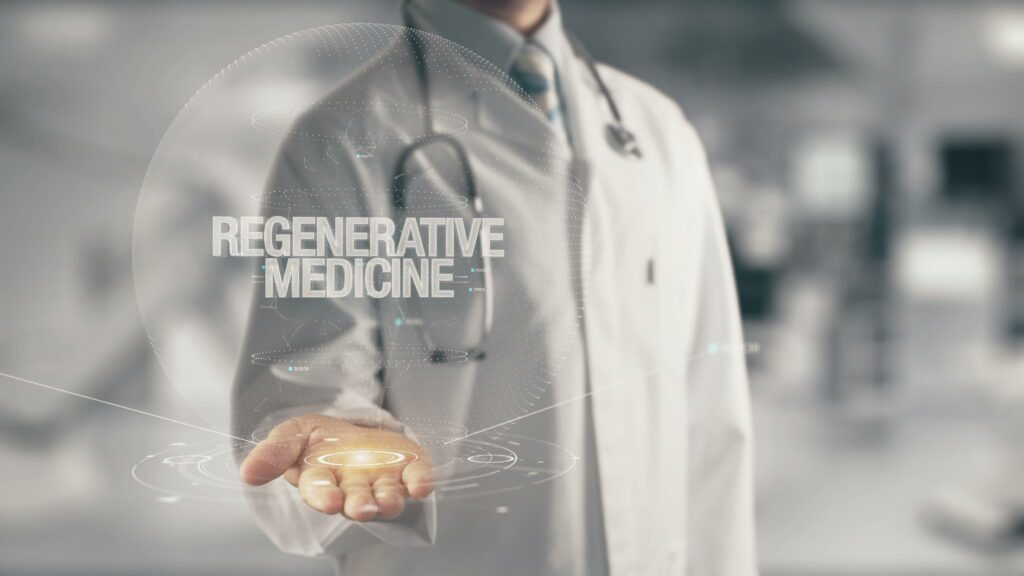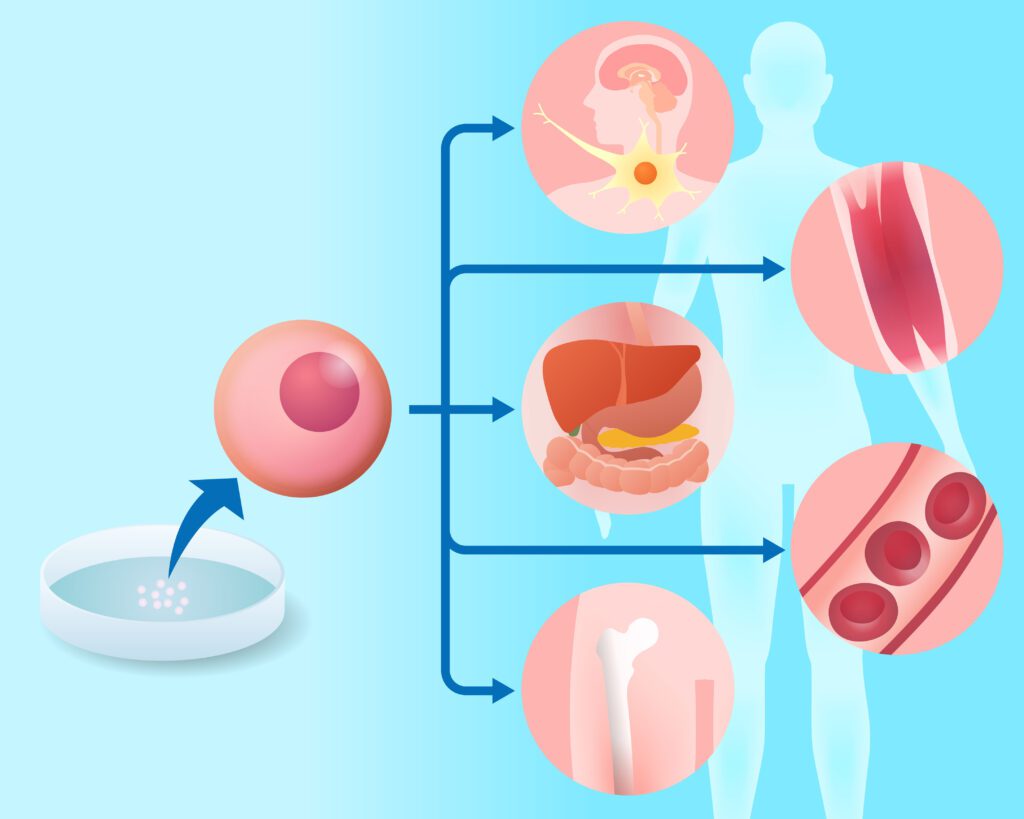Revolutionizing Healthcare: The Future of Regenerative Medicine

In the age of biotechnology, a field at the forefront of medical innovation is poised to redefine the essence of how we fight disease and heal our bodies. This revolutionary approach, known as regenerative medicine, holds the promise of not only treating symptoms but repairing underlying damage at the tissue and organ level. As we delve into the complex world of cellular restoration, tissue engineering, and stem cell therapy, we realize that this is not just a new chapter in healthcare; It turns out to be the dawn of a new era.
The Core of Tomorrow's Healthcare
Imagine a world in which the human body's natural ability to heal itself is not just a passive event but a methodically guided process—one that can rebuild everything from skin and muscle to complex organs like the heart and liver. This is not the stuff of science fiction; The essence of regenerative medicine.
Regenerative medicine, at its core, is the integration of molecular biology, tissue engineering, and the science of self-healing with a single, transformative goal: restoring the anatomical and functional integrity of damaged tissues and organs. This emerging paradigm is not just a definitive shift in medical thought; It is a comprehensive methodology that engineers a whole new medical environment. From treating chronic diseases to providing alternatives to organ transplantation, this innovative field promises personalized treatments that are more effective and less invasive, heralding a future where a 'cure' is not a Band-Aid but a solution that rebuilds and repairs.
A Symphony of Science: Building the Body from the Inside
The backbone of regenerative medicine is multifaceted and brings together a variety of sophisticated scientific disciplines to repair and rejuvenate the human body. Stem cell therapy, tissue engineering and bioprinting are not just standalone technologies; They are woven into a composite tapestry that paints the most comprehensive picture of self-healing healthcare we have ever seen.
Stem Cell Therapy: Geniuses of the Cell World
Stem cell therapy has great potential for treating a wide range of diseases and injuries. This approach can repair or even replace damaged tissues and organs by utilizing the body's primary cells. From bone marrow transplants, which have long played a key role in treating blood cancers, to the new horizons of using induced pluripotent stem cells (iPSCs) to regenerate brain tissues in neurodegenerative diseases, the possibilities are as vast as they are revolutionary.
Tissue Engineering: Creating Tissue According to a Blueprint
Although tissue engineering follows a more laboratory-bound path, it has equally groundbreaking implications. It involves growing cells on a scaffold structure to create functional tissues for clinical use. The technique not only raises hopes for patients awaiting organ transplants, potentially reducing the demand for donor organs, but also opens avenues for personalized medicine, where tissues can be grown from a patient's own cells, minimizing the risk of rejection.
Bio-Printing: The Art of Copying Nature
Bioprinting technology takes the concept of tissue engineering and adds an incredible layer of precision. By layering cells and biological materials in the precise patterns needed to replicate the intricate and complex structures of human tissue, bioprinting is making what was once theoretical more tangible. Although the fully printed organ is still a future goal, progress in this field is remarkable.
Sewing the Future: Regenerative Medicine Applications in Healthcare
The reach of regenerative medicine has already surpassed what was once considered a world of miracles. Let's explore how regenerative techniques are applied in real-world scenarios to treat and potentially cure countless conditions.
Chronic Disease Management: Changing the Narrative
For patients with chronic conditions, regenerative medicine is a ray of hope. From type 1 diabetes to heart failure, the potential of regenerative therapies to rebuild failing organs brings a new level of optimism to long-term disease management. The shift is not just from sustaining life to improving quality, but from managing a condition to reversing its fundamental effects on the body.
Organ Transplantation: Meeting Demand with Supply
The shortage of available organs for transplantation poses a pressing problem for global health. Regenerative medicine is not just a temporary solution; It is a leap from the current paradigm. When personalized organs are produced from the patient's own cells, the risks of organ rejection are reduced and the ethical conundrum regarding organ procurement is eliminated.
Advances in Wound Healing: Accelerating Healing
We all know that the body's capacity to heal can be extraordinary, but sometimes even that capacity can need a helping hand. Regenerative therapies are now improving wound healing processes, from skin grafts containing stem cell therapies to revolutionary gene therapies that enable functional skin growth over large areas. Its impact on trauma care and burn treatment in particular is nothing short of lifesaving.
Beyond the Laboratory: Creating a Path Forward
The journey of regenerative medicine from the laboratory to the bedside is full of dazzling possibilities, but it is equally beset by complex challenges to be met and ethical frameworks to be defined.
Overcoming Regulatory Hurdles: Overcoming the Unknowns
The new nature of regenerative technologies requires clear and comprehensive regulatory pathways. Striking a balance between security and the rapid pace of innovation is one of the industry's most pressing challenges.
Ethical Consequences of Genetic Engineering
As regenerative medicine moves deeper into the areas of genetic manipulation, profound ethical questions arise. The ability to not just repair but also improve raises the specter of designer dolls and other moral dilemmas that the field must address with great caution.
Accessibility and Patient Acceptance: Closing the Gaps
Innovations are only as effective as they reach. It is critical to ensure that regenerative therapies are not only effective but also accessible to those who need them most. Furthermore, gaining patient acceptance in a world where 'genetic modification' is still largely viewed through the lens of science fiction poses a communication and engagement challenge that the industry cannot underestimate.
Pioneer of Discoveries: regenerative Developments and Research in the Field of Medicine

Research in regenerative medicine is advancing at an unprecedented pace, with new technologies constantly emerging, groundbreaking collaborative efforts, and clinical achievements that offer signs of the future.
Emerging Technologies: Doors Opening to the Future
From the development of stimulus-responsive biomaterials that guide tissue growth to the emerging field of organoids – miniaturized and simplified versions of organs grown in vitro – the array of emerging technologies in regenerative medicine is as broad as it is breathtaking.
A Collaborative Approach: Uniting for Greater Goals
The complexity of regenerative medicine requires a multidisciplinary approach. Researchers, clinicians, bioengineers, and patients must collaborate to exploit the full potential of this new frontier and ensure that technological prowess is matched by clinical insight and patient-centered design.
Success Stories and Clinical Trials: Charting the Course
Dr. From Anthony Atala's groundbreaking work on 3D printed organs to the many clinical trials ongoing around the world, the successes of regenerative therapies are beginning to dot the landscape and point to a future where medicine can do more than treat symptoms – it can address the root cause.
Bottom Line: Regenerative Medicine's Impact on Healthcare
The possibilities offered by regenerative medicine are not only a boon for individual patients; It could be a game changer for the entire healthcare industry. Regenerative medicine can impact healthcare at every level, from changing care paradigms to potential cost efficiencies.
Cost Effectiveness and Sustainability
Creating in-lab organs and tissues could greatly reduce the cost and logistical challenges of traditional organ donation and offer a sustainable supply side for the growing demand for transplants.
Changing Healthcare Delivery Models
Regenerative medicine is not just about developing new treatments; It's about rethinking how healthcare is delivered. As we move towards personalized, precision medicine, the traditional 'one size fits all' model of care may give way to a more bespoke approach determined by the individual's unique genetic makeup. Telemedicine, wearable technology, and a host of other innovative approaches are coming together to support this shift.
Education and Training: Preparing for the Regenerative Age
As regenerative medicine charts a path for itself in the medical world, it requires us to rethink how we educate the next generation of healthcare professionals. A more streamlined approach to interdisciplinary training and education must become the norm, allowing future physicians and researchers to navigate a complex and rapidly evolving field.
Last Impression
With each technological breakthrough, ethical debate, and clinical success, the picture of regenerative medicine becomes clearer and its presence in the future of healthcare becomes more undeniable. But such an ambitious frontier requires more than just academic curiosity and capital investment; It demands the joint effort of the scientific, medical and ethical communities. It expects us to walk a fine line between what we can do and what we must do, to push the limits of possibility while respecting the sanctity of human life.
The journey may be full of challenges, but determination is unwavering. As we stand on the threshold of a healthcare revolution where healing means restoration and treatment paves the way for a new beginning, the future of regenerative medicine is not only promising; It is also necessary. Above all, it is a testament to human ingenuity and a lasting testament to what we can achieve when we unite for a common, compassionate purpose.
Why Should You Choose Samas?
- Reliability: Samas is a reliable solution partner in the healthcare industry. It gives confidence to customers with its experience and quality service approach.
- 3M Quality: SamasMed offers products from the world-renowned 3M. It provides access to reliable and effective products with high quality standards.
- Wide Product Range: It offers a wide range of products including medical equipment, surgical supplies, hygiene products and more.
- Customer Satisfaction Focus: Samas prioritizes customer satisfaction. It offers the most suitable solutions with its expert staff.
- Fast and Reliable Service: Samas offers fast and reliable service. It strives to meet needs as soon as possible.
Samas is here to meet the needs in the healthcare industry and provide the best service.


Comments are closed